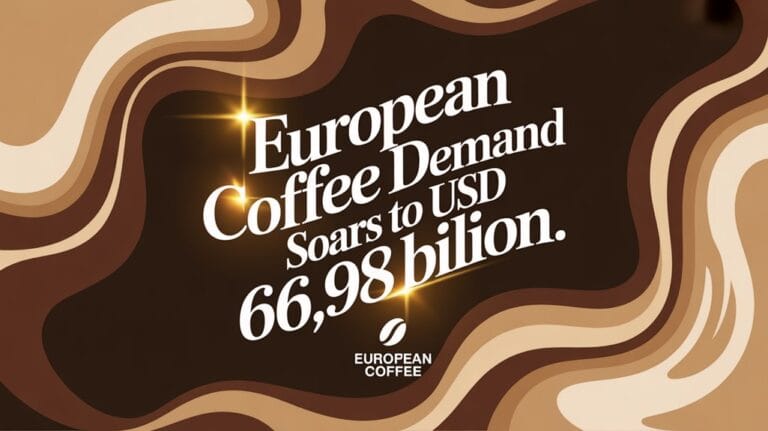European coffee demand is rising dramatically, with the market valued at around USD 47.88 billion in 2024. This growth is set to continue as experts predict a market size of about USD 66.98 billion by 2033. Coffee consumption across Europe is fueled by a growing appreciation for premium and specialty offerings. This includes unique blends and artisanal brews, which are becoming more popular among coffee lovers.
European coffee demand is soaring, with a market projected to reach USD 66.98 billion by 2033, driven by a love for premium brews.
In several European countries, traditional coffee cultures remain strong. Italy, France, and Germany are just a few examples where espresso and cappuccino are beloved staples. Alongside these classics, specialty coffee is on the rise, reflecting consumers’ desire for diverse and exceptional beverages. Small coffee roasters are gaining traction as people seek items that stand out in taste and quality, further aligning with the third wave coffee culture that emphasizes artisanal craft.
As the market expands, coffeehouses and cafés have adapted to shifting consumer preferences. They have become social hubs where friends meet and enjoy their favorite drinks. This trend emphasizes coffee’s role in daily life, adding to the vibrant coffee culture that exists throughout the continent. Many Europeans now enjoy organic and sustainably sourced coffee, showing a growing awareness of ethical consumption. Additionally, the increasing popularity of shade-grown coffee highlights consumers’ commitment to sustainability in the coffee industry.
However, challenges persist. Rising prices and inflation have affected coffee consumption in some regions, including the UK and Switzerland. Despite this, brands are responding by ramping up marketing efforts to attract coffee enthusiasts. Retail prices have increased due to supply chain pressures. Consumers are adapting but still maintaining a strong interest in their morning brew.
Younger generations, especially Gen Z, are starting to drink coffee earlier, reshaping modern preferences. They gravitate toward trendy flavors and non-dairy options. This shift, paired with a love for specialty offerings, continues to drive demand across Europe. As the market evolves, coffee remains a beloved part of everyday life, proving that the buzz isn’t fading anytime soon.

